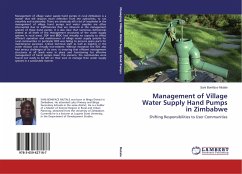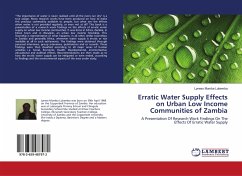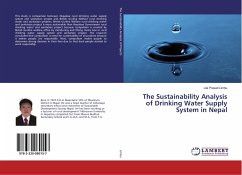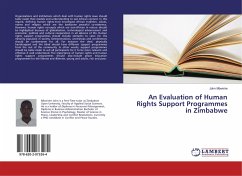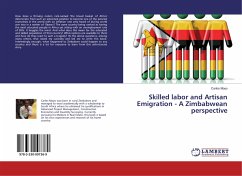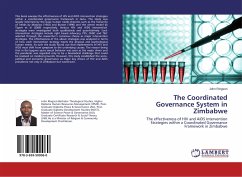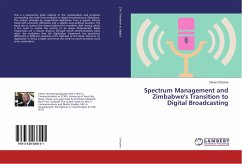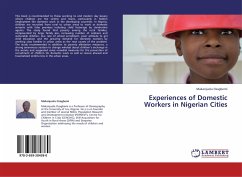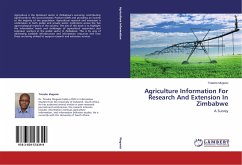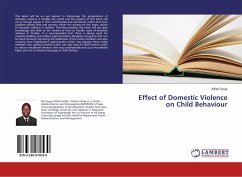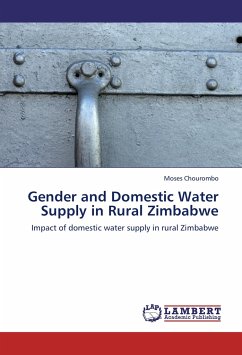
Gender and Domestic Water Supply in Rural Zimbabwe
Impact of domestic water supply in rural Zimbabwe
Versandkostenfrei!
Versandfertig in 6-10 Tagen
32,99 €
inkl. MwSt.

PAYBACK Punkte
16 °P sammeln!
Water for domestic purposes is a scarce resource in the rural areas of Sigangatsha and Malaba wards, and women are the most affected. This study focused on examining the impact of domestic water supply and challenges faced by women in rural Zimbabwe with a particular focus on Sigangatsha and Malaba wards of Matobo district in Matabeleland South Province.The study identified the challenges faced by women in these two communities as well as implications of domestic water supply for policy formulation. The study relied on the structuration theory propounded by Giddens (1984), the actor oriented p...
Water for domestic purposes is a scarce resource in the rural areas of Sigangatsha and Malaba wards, and women are the most affected. This study focused on examining the impact of domestic water supply and challenges faced by women in rural Zimbabwe with a particular focus on Sigangatsha and Malaba wards of Matobo district in Matabeleland South Province.The study identified the challenges faced by women in these two communities as well as implications of domestic water supply for policy formulation. The study relied on the structuration theory propounded by Giddens (1984), the actor oriented perspective by Long (2001) and gender and development by Moser (1989). Key words: domestic water, domestic water supply, women and gender.



